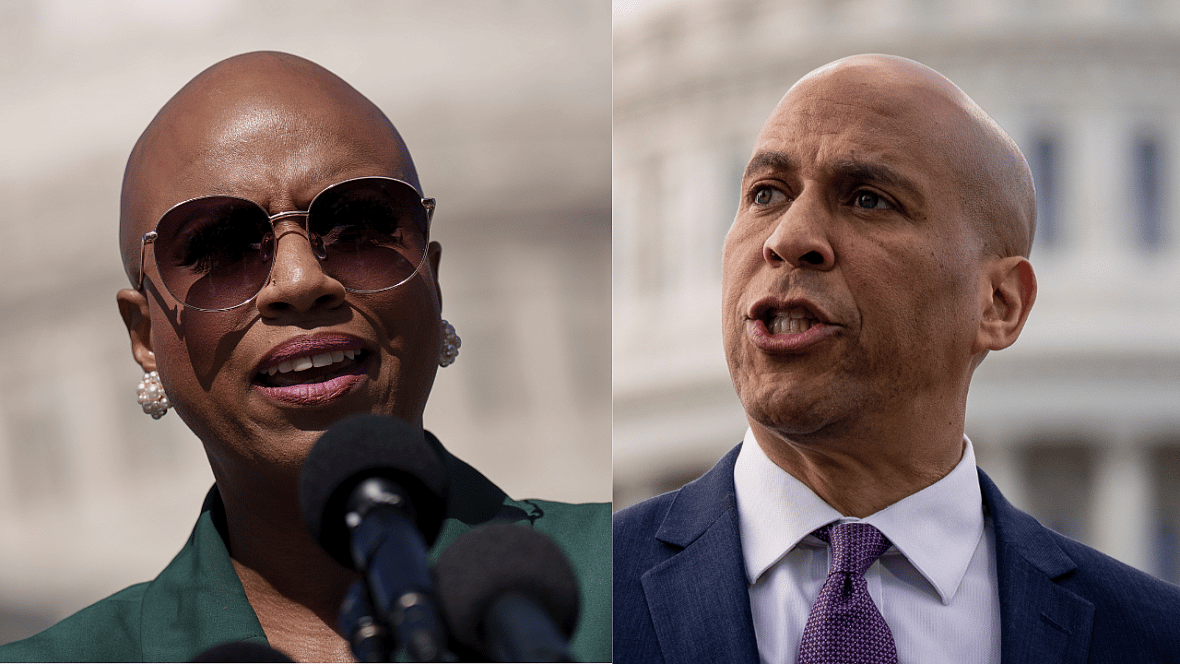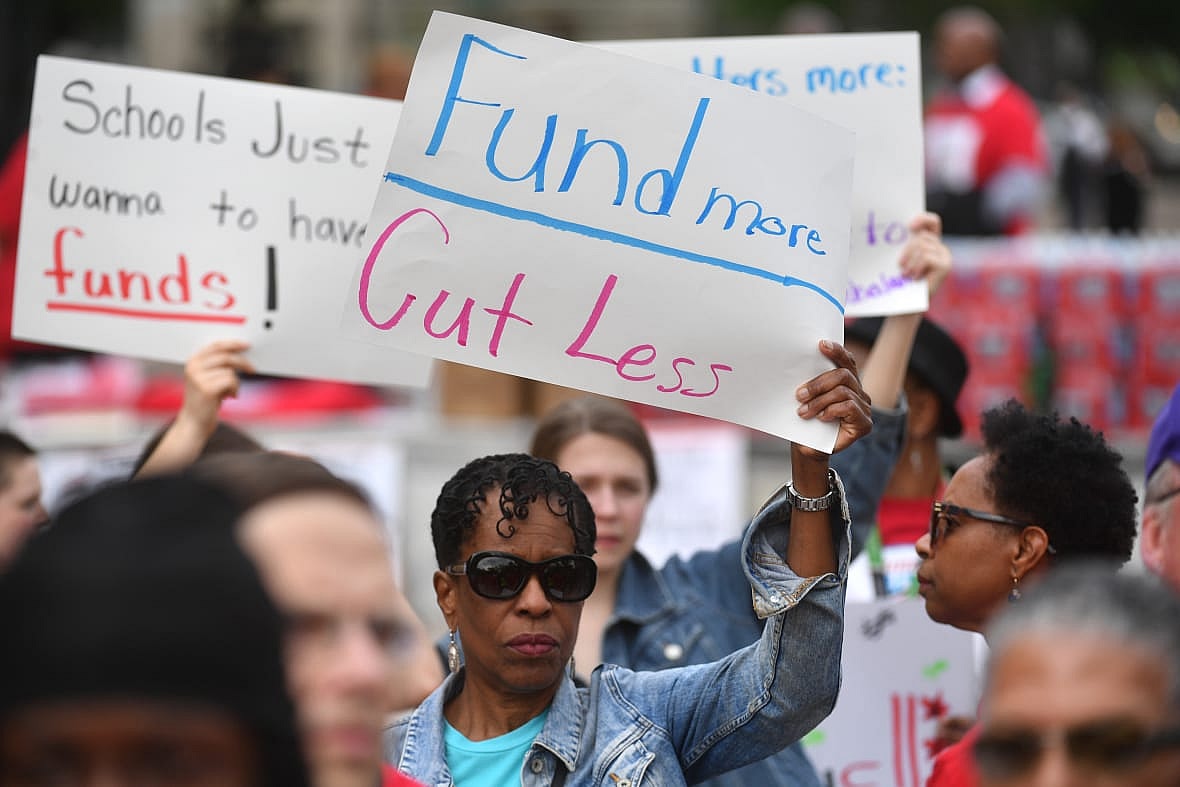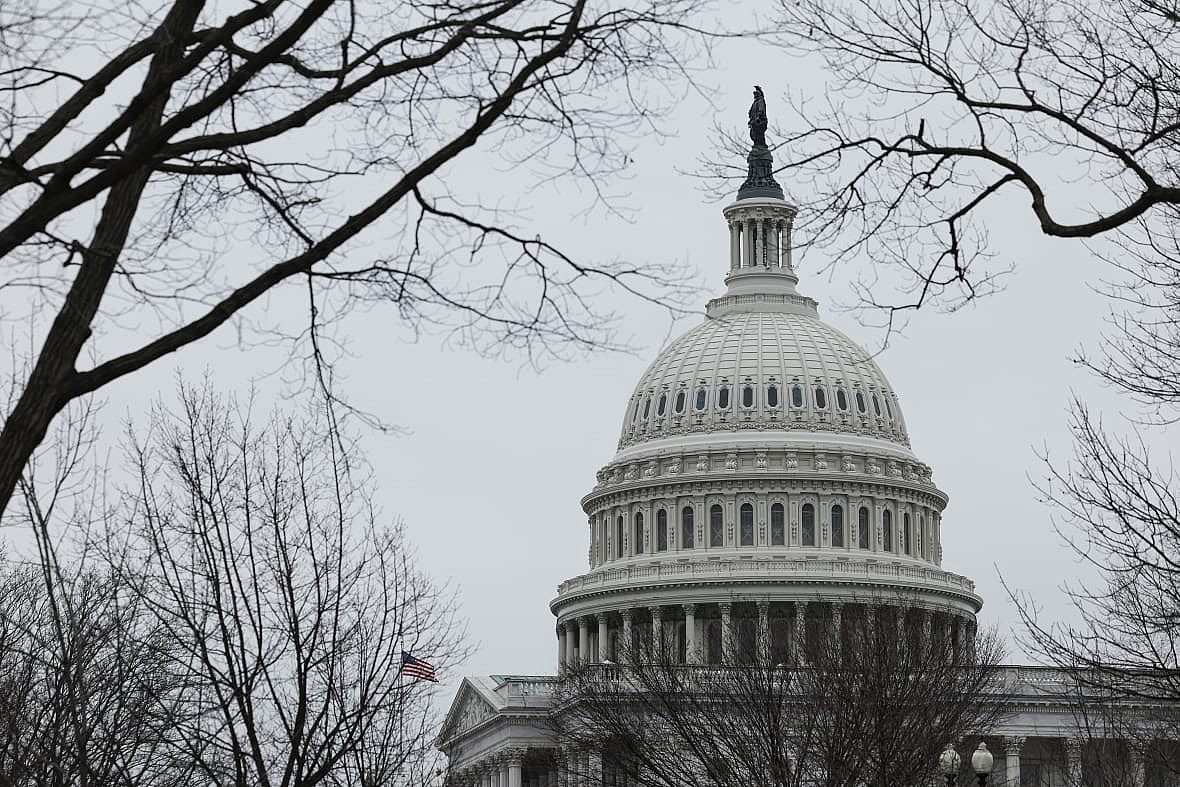U.S. Rep. Ayanna Pressley (D-MA) and Senator Cory Booker (D-N.J.) are reintroducing legislation that would establish federal baby bonds in an effort to close the racial wealth gap, theGrio exclusively reports.
Pressley and Booker on Wednesday will introduce the American Opportunity Accounts Act, which would create a federally funded savings account for every American child. The two Democrats say they hope the bill will make “economic opportunity a birthright.”
“The racial wealth gap in America is the result of generations of precise and intentional policy violence, so we must be as intentional and as precise about advancing policies that address it head-on,” Pressley said in a statement.

“Baby Bonds are one of the most effective tools we have for closing the racial wealth gap and breaking the cycles of poverty and trauma that have prevented Black and brown folks from thriving in this country,” her statement continued.
Booker first introduced the American Opportunity Accounts Act in 2019 during the 116th Congress. He reintroduced it with Pressley in 2021 in the 117th Congress. In both sessions, legislators never voted on the bill and only referred it to House committees.
If congressional leaders pass the bill this time and President Joe Biden signs it into law, the federal legislation would authorize the secretary of the Department of Treasury to transfer $1,000 into an account for every individual born after Dec. 31, 2023.
Depending on a family’s income, the American Opportunity accounts would receive up to an additional $2,000 a year and accrue interest until the individual is 18 years old. Accounts for minors in a family of four that earns less than $25,000 a year could accrue as much as $46,215, according to the congressional offices.
At age 18, account holders can use the funds for eligible “wealth-building activities.” A “qualified expense” includes purchasing a home, funding higher education or investing in “financial assets or personal capital that provides long-term gains,” according to the bill.
The offices of Pressley and Booker explain other expenses that qualify include investing in a small business and saving for retirement.

“Americans today are having a harder time accessing homeownership, higher education, and a secure retirement than their parents did just a generation before them,” Booker said in a statement provided to theGrio.
“This is due in part to our upside-down tax code, which is great at preserving and building wealth for corporations and wealthy families, but fails Americans who are barely getting by and are unable to afford long-term investments to get ahead,” the statement continued. ‘Baby Bonds’ would fix our broken tax code by providing every American child with startup capital for their life.”
According to a 2020 report from the Brookings Institution, the racial wealth gap widened over decades and the COVID-19 pandemic only exacerbated the inequity. The public policy research firm cited data that, as of 2019, the median white household held nearly eight times the wealth of a Black household.
Andre Perry, a senior fellow at Brookings Institution, affirmed that policies like Pressley and Booker’s federal baby bonds bill could help address America’s racial wealth gap.
“Wealth divides in this country necessitate the need for a revised social safety net as well as different ways to build wealth in this country,” Perry said in a written statement. “Providing baby bonds based on income will help those who are not born into wealth to purchase a home, go to college or start a business without going into debilitating debt.”

While federal baby bonds would benefit all Americans, it would especially improve the economic conditions for Black and brown children. According to data published by Kaiser Family Foundation, Black and Latino households hold poverty rates of 21.7% and 17.6%, respectively, which is disproportionately higher than white households at 9.5%.
State and local legislators have introduced baby bonds in their jurisdictions, and the District of Columbia implemented the investment program last year. Lawmakers in Connecticut passed a bill to create a baby bond fund, but, reportedly, the governor’s office is stalling it. Other states that have proposed or flirted with the idea of a version of baby bonds include Washington, California, New Jersey, Massachusetts and Wisconsin.
In response to the growing movement, Pressley said, “It is no surprise that this idea has gained traction in states across the country.” She added: “Black lives and Black wealth matter, which is why Congress must pass our bill without delay.”
TheGrio is FREE on your TV via Apple TV, Amazon Fire, Roku and Android TV. Also, please download theGrio mobile apps today!

